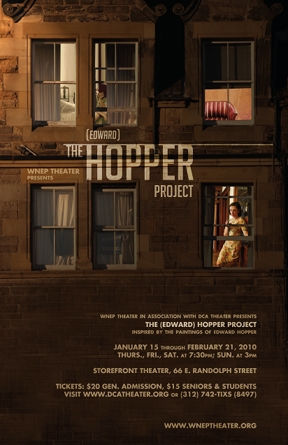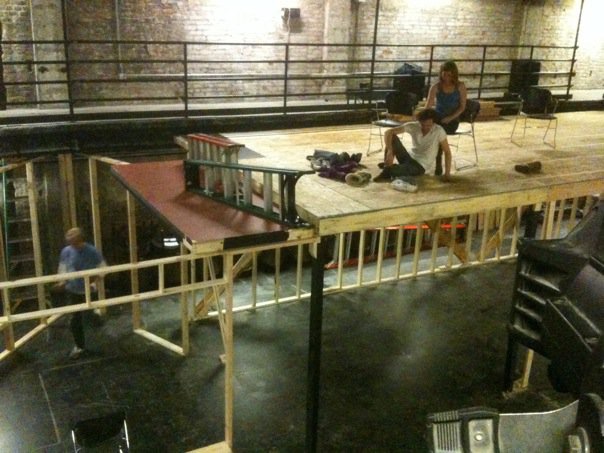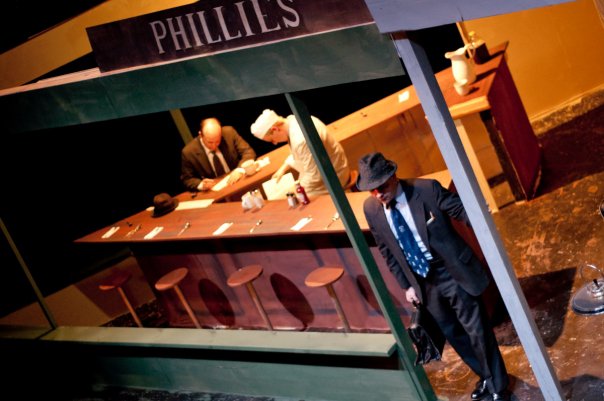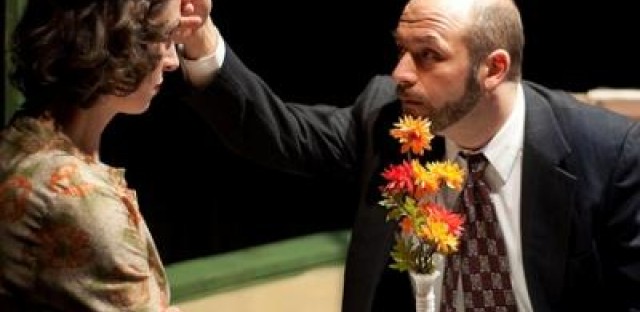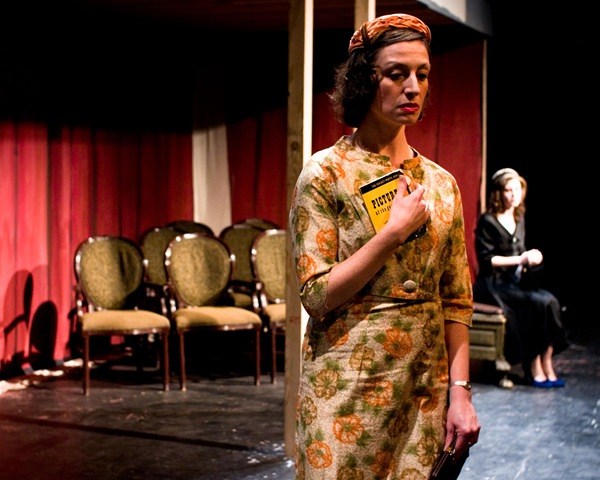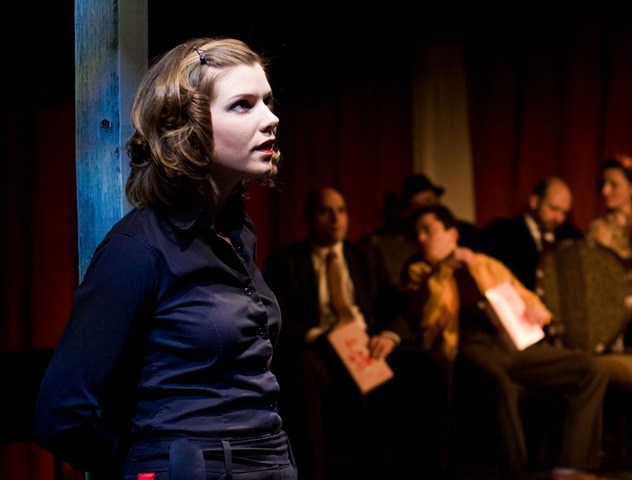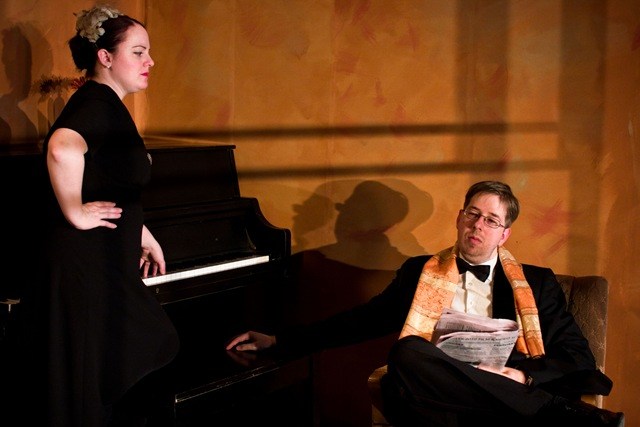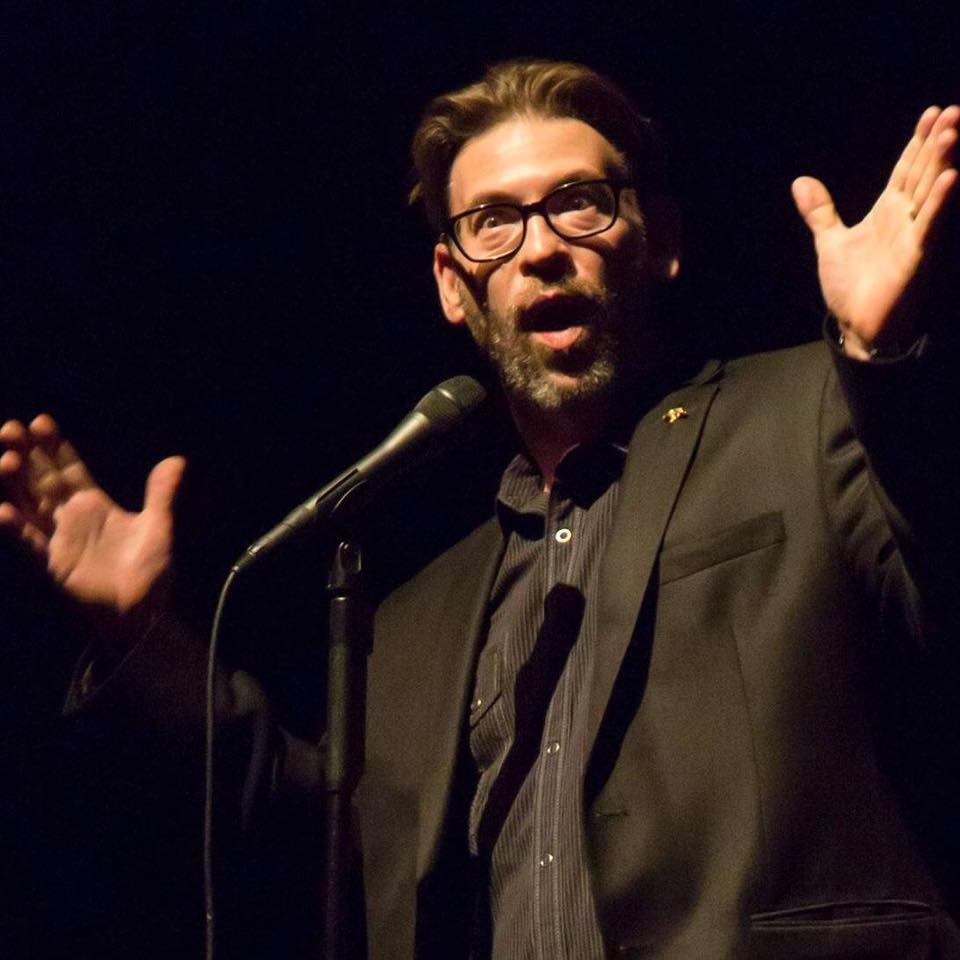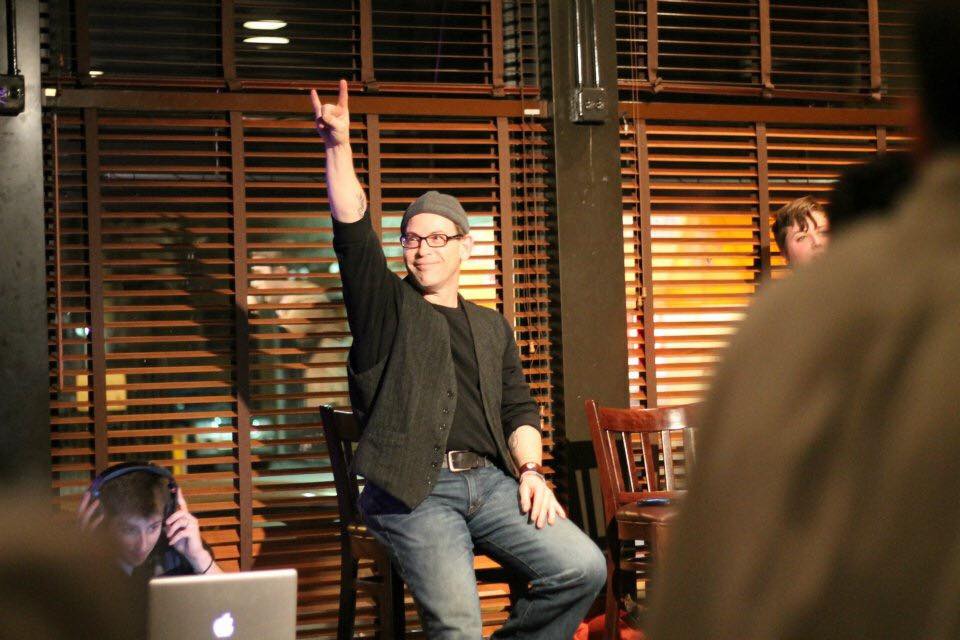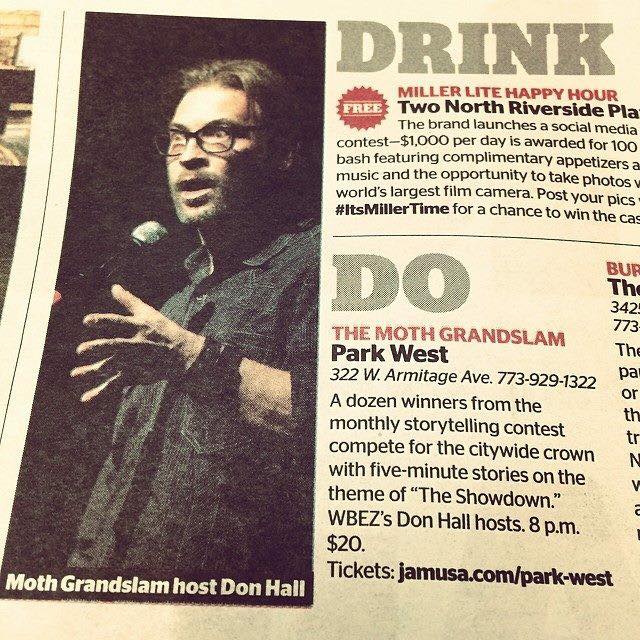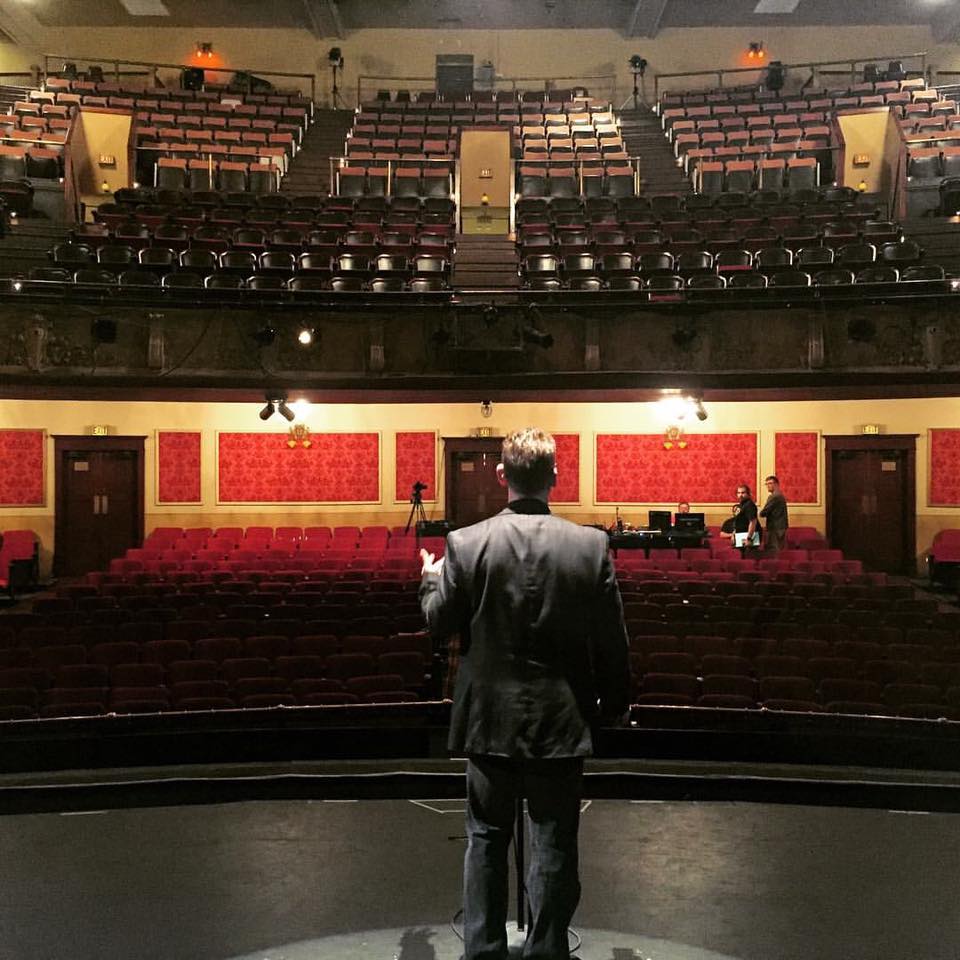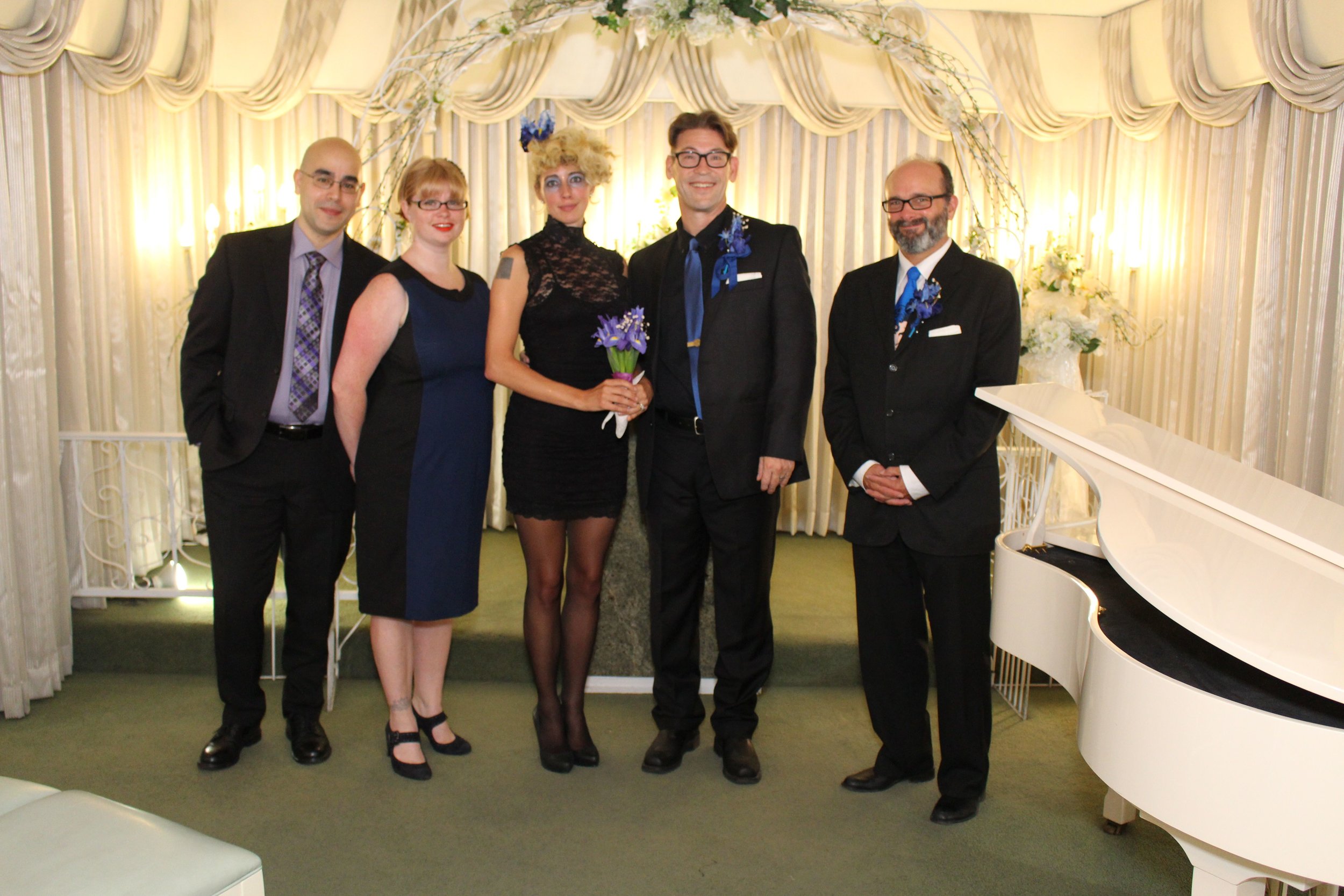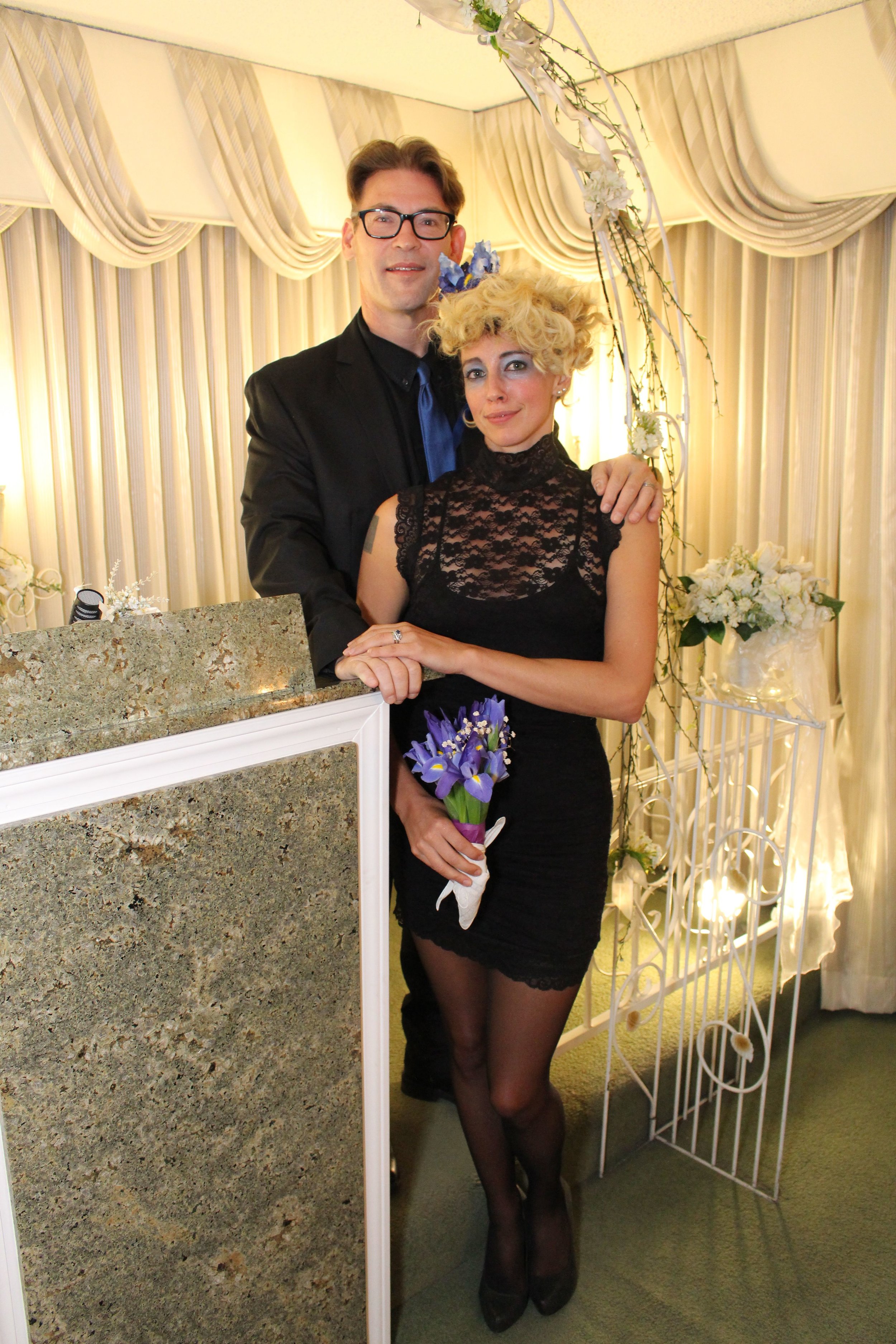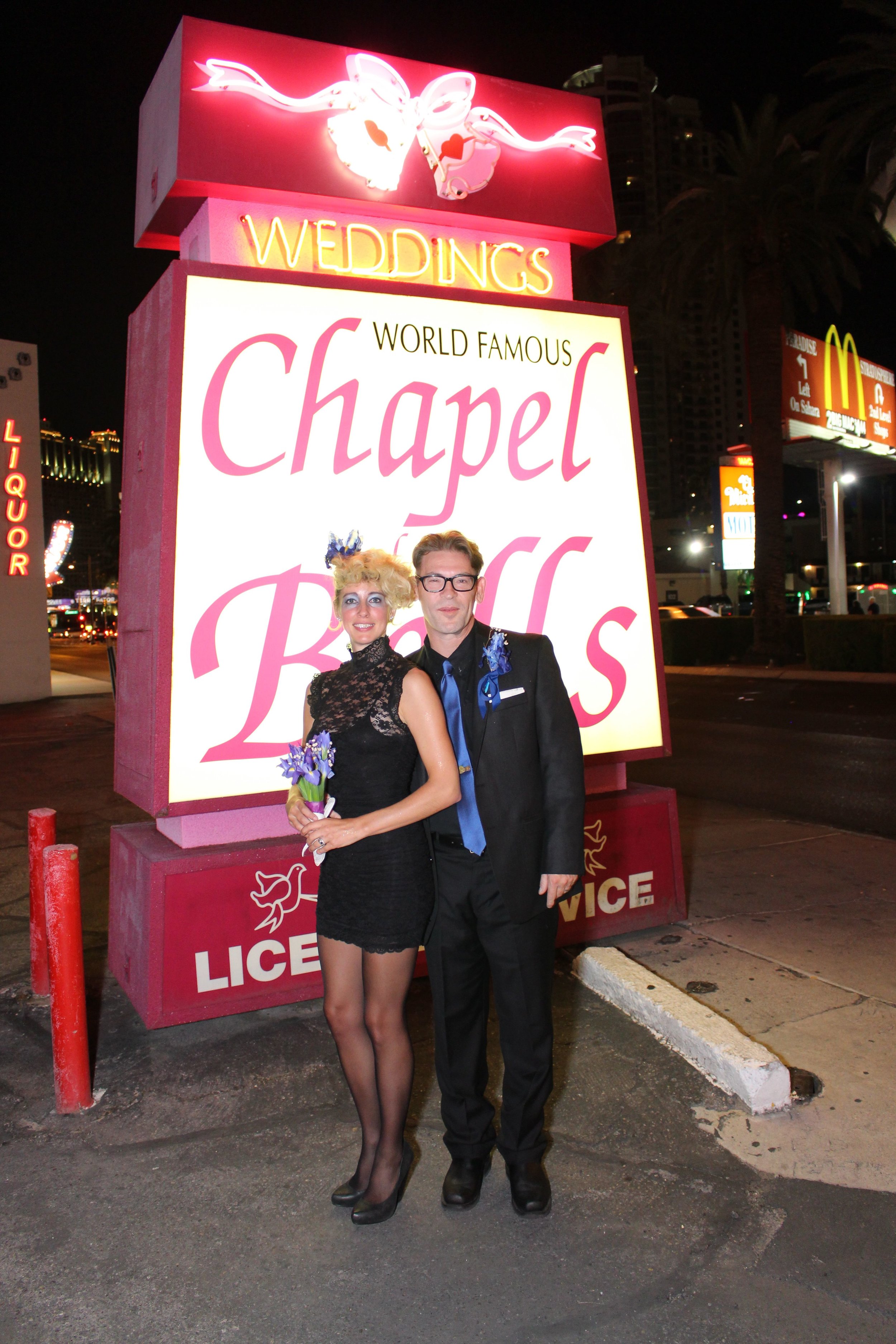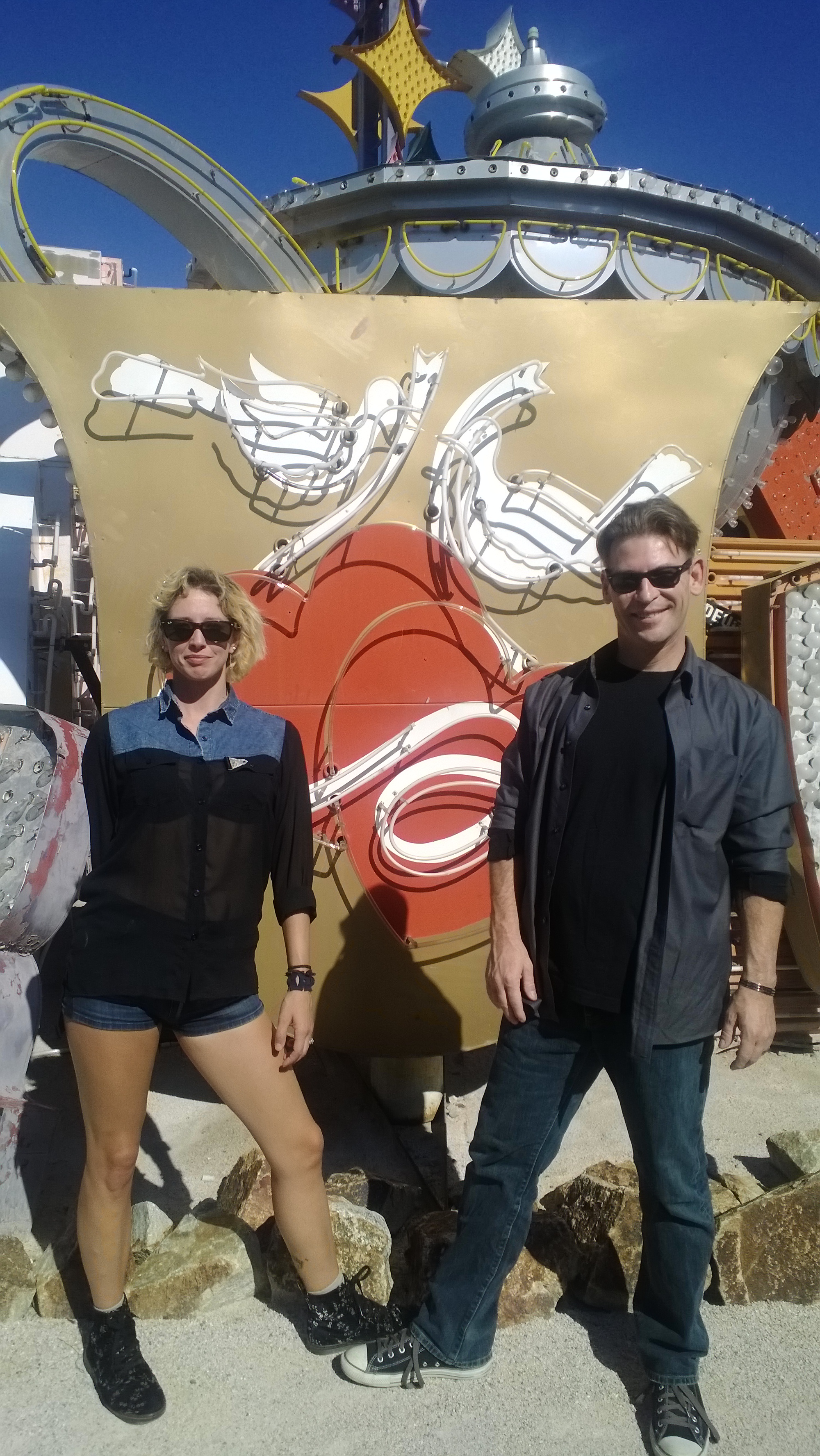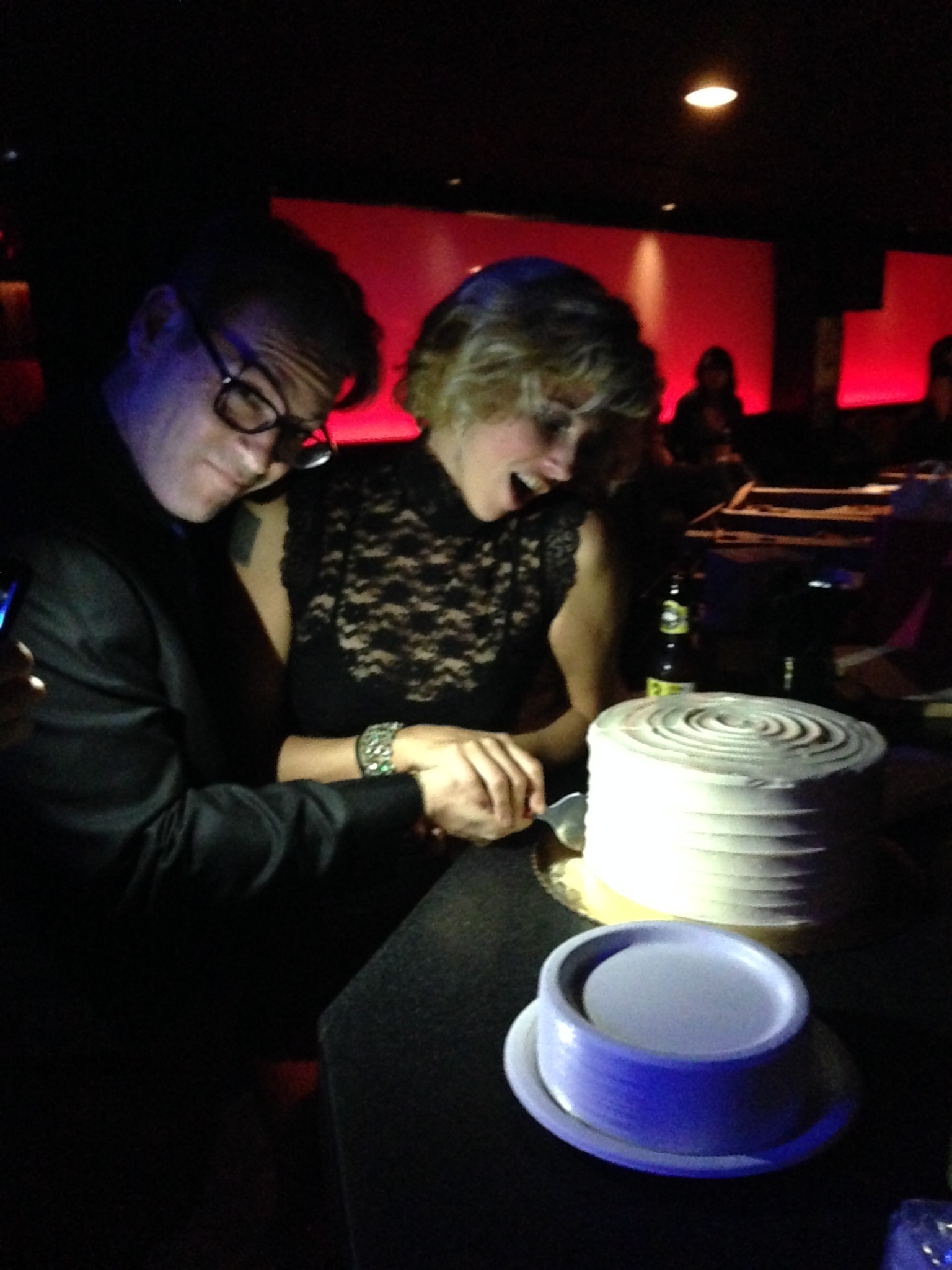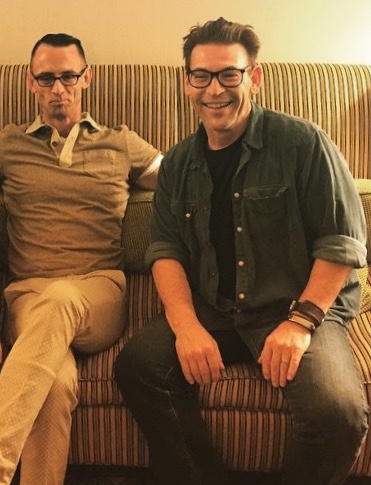Farewell to Chicago [1989–2019]
Thirty years. Almost to the month. Like my ten years with the Chicago Public Schools (closer to nine), my decade in the public radio mines (shy by two months) and my five years hosting The Moth (just short by a month), I’ll round up and if that bothers you, consider yourself a pedant and kin to that fucker who corrects your grammar while in line at a CVS.
No one in Chicago knew a goddamned thing about me on April 7, 1989. I didn’t know anyone in Chicago that day as I drove my blue and grey 1984 Bronco II onto a crowded Lake Shore Drive in Friday afternoon rush hour. Having spent my years growing up jumping from place to place, new wasn’t intimidating but that traffic was something I had yet to encounter. Christ, it took me two days in Chicago to figure out that when other drivers were honking at you, they weren’t waving but flipping you off.
I had no clue on that day that I’d spend the next thirty years of my life in Chicago.
A recitation of accomplishments, jobs, marriages (three), personal and public wars, and lessons learned easy and hard wouldn’t do it justice. I might as well list the cash amounts paid out to rent and utilities. There are, however, moments that help sum up and define what became known as my Chicago.
1989
1990 — Artist in Residence Apt.
“Are you the new librarian?”
“No. I’m the music sub but they didn’t have a music position open so I’m being paid as the library sub.”
“Oh. Well, can you bring the book cart to my classroom at 10:45 anyway?”
“Sure.”
“By the way, you know you can’t sleep in your truck in the school parking lot, right?”
“Oh. Yeah. Got it.”
BIG FISH
1990
Marty DeMaat welcomes the Level One students to the Second City Training Program. I look around at the new faces and see Alida Vitas, whom I steamrolled through in our audition scene a few weeks ago. I wave “Hi” and she smiles. Joe Janes is there. He auditioned right after I did so he was in the room during mine. He seems slightly surprised to see me.
“Oh.” he says drily. “They let you in?”
Weeks later, he and I and a cast of other trainees concoct a sketch show entitled “Attack of the Fifty-Foot Woman” that we produce in Andersonville later in the year.
1991
“I can’t believe you’ve never had a Lincoln Breakfast,” he mused.
Carey Goldenberg, a Jewish Deadhead who had performed at Second City with Julia Louis-Dreyfus and Dan Castelleneta and was now an eighth grade math teacher, sat down at the booth.
“Try the The Monitor Skillet Eggs.”
“Monitor?”
“Named after an Ironsides ship from the Civil War.”
“Oh. Weird.”
“So what’s the big number for the choir next week?”
“We’re doing a tribute to Journey.”
“And the kids dig it?”
“They love it. It’s all new to them. They think ‘Don’t Stop Believing’ was written with them in mind.”
“It kind of was.”
“Yup.”
“You aren't Going to Tell My Mom, are You?"
1992
Jeff Hoover, Joe Janes and I, sitting in the grass just behind the Chicago History Museum. Each of us have cigars and are smoking them.
Weeks earlier, Jeff and I saw “Cannibal Cheerleaders on Crack” on Broadway and, in a slightly drunken haze, decided we could could probably do better.
“Let’s call Joe,” Hoover slurred, tipping his Modelo just enough to dribble some on his shoes.
In the grass, amidst the stinky clouds of barely smoked Romeo and Juliettas, the three of us decide to start our own theater company. Weeks later, we hold auditions in the Neo-Futurarium and cast Level 6, an ensemble of improvisers and sketch comedians with aspirations of something more.
Peculiar Journeys Ep. 28
1993
From the Chicago Reader when they reviewed shows every week, every show:
A MEAN WATUSI
Level 6 and Free Pickles
at Shay's
Only suckers and wimps do just one show at a time: that seems to be the spirit behind the two new revues being hosted by the comedy group Level 6, and for chutzpah alone they deserve credit. While running their straight improv show A Mean Watusi every Sunday night at Shay's bar, they've also put together a scripted show, Silence of the Frogs, a so-called "nonrevue of unimprovisation," which they perform Wednesday nights. Unfortunately, the young group's ambition has overreached their talents, and what might make a fresh 90-minute show has been inflated into two overlong evenings.
The group's biggest mistake is failing to isolate its real creative strength. In A Mean Watusi Level 6 shows what it does best with new twists on the standard improvisational games and some quick wit. While not all the scenes are winners, the group's good humor and high energy make the clunky moments easier to take.
SILENCE OF THE FROGS
Level 6
at Puszh Studios
In Silence of the Frogs, the creative limitations of Level 6 really begin to show. One would think the luxury of a script would prompt them to weed out some of the dross, but instead their material only seems worse. After an interesting introduction in which actor Don Hall plays a muted trumpet to an audio background of croaking frogs, the show screeches to a halt in the first scene.
Cliched dialogue, nondescript characters, and half-realized situations, the sketches end before anything really happens. To make things worse, Joe Janes's direction is so uncertain that the actors appear uncomfortable as they carry out silly stage business (such as when the workmen begin scrubbing an el platform, a spectacle I have never witnessed in all my years as a commuter).
The rest of the scripted material suffers from the same problems. The choppy structure and uneven quality of material give the revue a sluggish pace that is often hard to follow. While a lack of communication between people seems to be the vague thematic thread, it is never clearly outlined and comes across as a lazy afterthought. The show picks up, though, after Silence of the Frogs, when the group returns to do some improv.
In their press release, the group makes a revealing statement: "In Silence we're out to create good art. That doesn't mean it's not entertaining, it's just not our primary objective." Maybe they should abandon their pretensions and stick to what they're good at. At least in improvisation there's not enough time to think about making good art.
— Tim Sheridan
Government Cheesh
1994
Closing up the band room after teaching from 7:30am til 3:30pm and then having after school band until 5:00pm. One of my students, a drummer, helps put things away.
“What do you do after school, Mr. Hall?”
“Some nights I have shows with my theater company. Other nights I perform improv comedy with ComedySportz.”
“Ain’t you married?”
“I am.”
“Prolly not for long.”
✶
As one gets older it becomes more difficult to make friends. At least that’s been the case for me. In my experience, the friends whom I can say I’ve cemented a lifelong bond with have all come from making art together. Sure, many have come and gone in that theater immediacy of sort of falling in love with each other during the rehearsals and run of the show, the promises to keep in touch after the show closes, only to move on and be friendly acquaintances. Faceborg connections.
365 Sketches written in a year performed in two weeks
Chicago is one of those places in the world, like the bizarre tourist attractions that give power to Gaiman’s American Gods, that draws amazing artists to her embrace. I have met and worked with so many extraordinary humans within the gates of this town it boggles my mind to reflect upon the sheer number. Because art is a dramatic and contentious preoccupation, there are some whom the explosion of ideas and execution burned away from the raw electricity. The burning of those connections are always a bit sad but the celebration is of the creation.
One friendship that has remained intact and with the gravity of true family across my time in Chicago is that which I have with Joe Janes. He and I have been a part of so many artistic experiments — from the early days of Level 6 to the producing of his first full-length play to the spectacle of putting up all 365 sketches he wrote in a year — despite some dark patches and irreconcilable differences along our nearly thirty years, he is the closest thing to a brother I’ve ever had. I hope I can convince him to move to Vegas but even if I don’t I will always consider him the best of friends (not to mention one of the kindest humans I’ve ever run across from and the Spock to my Kirk.)
✶
1995
We held a yard sale. We sold bars of chocolate. I managed to snag us an Air Canada sponsorship for ridiculously cheap flights and booked a 17 room three-flat just minutes from the Fringe Central ticket center for around $50.00 per person for the month.
“The Armageddon Radio Hour” and ComedySportz. 26 shows in the month of the largest theater and arts festival in the world. While Chicago roasted that summer, the gang of WNEP Theater performed and saw more awesome, bizarre, experimental stagecraft than we could’ve imagined. We stole so many of those ideas and employed them back in Chicago it is no exaggeration to say that a month at the Edinburgh Fringe is better than a theater degree.
All Sandwiches Matter
1996
Joe Bill (of the Annoyance Theater) and I sit in the court room, waiting for my name to be called. We were there because a few months prior, in an act of guerrilla marketing, I instigated the fly posting of thousands of ‘teaser posters’ for the newest WNEP play and wasn’t smart enough to realize that once we put up the real posters, we’d get busted by the city.
For a few weeks in our little circle of artists and theatergoers, the question was “What the fuck is ‘Metaluna’?” Posters featuring the word and a photo of Sigmund Freud in a slip were plastered everywhere. I had multiple conversations about the mystery always with a smirk in my brain because we were in rehearsals for this ridiculous, massive show that made no sense spawned from the cracked mind of Joe Janes and directed by the equally off-balance Bob Wilson.
Five stages. Two constructed fat suits. Expanding arms. Muttonchops. A theremin. DADA poetry on vaudeville stages. Giant circus-like posters painted by Kevin Colby. It was the most ambitious show we had created to date and caught the eye of Jen Ellison, who after seeing the show, decided she wanted to be the artistic director of the company responsible.
The city fined us $20.00 but warned that they could’ve fined us $10,000. It was not the last time we would come into contention with Chicago but it was definitely the lightest sentence.
In Nonsense Is Strength
1997
Mr. Jose Barrias was the beginning of a trend.
Hired by Sharon Hayes to come in and teach music at District One Middle School, my predominant skill she prized was my tendency to bend both the rules and the expectations placed upon the role of music teacher.
My classroom had no desks or chairs. We had rugs and pillows. We didn’t spend any time learning to play plastic recorders. We listened to and discussed music and musicians and read from my college music history text. I had the HOT ROOM across the hall. I had a wall of gum that the students (not supposed to chew gum in school but did anyway) would add to every day.
In 1996, Sharon left. Barrias was hired. Jose did not appreciate my less than orthodox approach and, while he did his best to get me to follow a more traditional protocol, it didn’t take.
A year later, my teaching career was over. The trend was set — get hired to shake things up creatively, person who hires me leaves, bureaucrat comes in who wants a by-the-book approach, I stay a year longer than I should then split.
Did I Say Hot Room?
1998
“I think I want a divorce. We’ve been this for a while since college and I’m pretty sure you hate Chicago and I love it and we’re both kind of miserable.”
“That’s what my grandma said marriage was.”
“Seriously? I didn’t know that. I’m sorry.”
“What will you do?”
“I’ll probably get a bachelor apartment in a crummy neighborhood, jump right back into another relationship, get marginally suicidal but mom will talk me through it. The theater company will kind of blow up because I’ll spend too much time drinking because the idea of being divorced is a bit intense for me and I’ll be a total fuckwad. We’ll do some shows but I’ll be mailing it in for the most part. It’ll cause a huge rift between Joe and I but we’ll repair it a while later. How about you?”
“I’ll get the fuck out of Chicago, move back to Texas, get remarried, he’ll die a year later but then I’ll meet the man of my dreams, we’ll get married and have two children. Oh, and I’m keeping both the dog and the cat. You can see them on Facebook in ten years.”
1999
FOR WNEP, IT'S `APOCALYPSE' NOT YET
THE FOUR HORSEMEN ARE READY TO RIDE
It was always about Keith Whipple. Sure, we had a massive cast and spent more money on this ridiculous, ambitious monstrosity. Twenty-five working televisions, five VCRs connected, amazing costumes, and a dark satire on Christianity. Cathleen Carr, one of our producers, broke her pelvis during load-in. Joe Kaplan built a set that could actually withstand the apocalypse.
Whipple, however, stood out on Lincoln Avenue before every show improvising riffs on Revelations with a megaphone to an unsuspecting pedestrian audience before crashing the start of the play. He endured eggs thrown at him, physical threats, and the police called on him. And he never once flagged or complained.
✶
The wonderful cesspool that is Chicago holds a special place for the transplant. Sure, there are the diehard Chicago natives, stuck in their neighborhoods and allegiance to their high schools and local digs, but the transplant has this wide open space to navigate. Chicago has been a magical playground, like a hardcore Midwestern Disneyworld with different “lands” to go to and experiment within.
I was always the new kid in school because we moved around a lot. As much as anything else, it is this foundation upon which my many career moves were made while surfing across Lake Michigan’s shores.
Public school music teacher.
Off Loop Theater Producer, Director, And Actor.
Improvisational Comedian.
Playwright.
Improv Coach and Teacher.
Venue Manager and Landlord.
Retail Tobacconist.
Massage School Facilities Manager.
Public Radio Events Director.
NPR House Manager.
StorySlam Host.
Digital Publisher and Writer.
Independent Events Consultant & Producer.
Front of House Manager of Millennium Park.
Only in Chicago could I bounce around so sporadically, learning from each experience and growing in my skills. Only in Chicago could I have that many shifts in vocation without adding “Unemployment” or McDonald’s to my resume.
✶
2000
She was both excited and incredulous.
“You signed a lease on a theater?”
“I did. It was about time we had our own clubhouse.”
“Can we afford it?”
“We have to. I mean, we don’t really have a choice now.”
“How much is in the company bank account right now?”
“$18.00.”
“…”
2001
I woke up late. Jen was in the front room. She was crying. I came in and she was staring at the TV. The footage was live and it was off a disaster of some sort in New York. As I sat next to her, neither of us spoke. We sat like that for almost an hour as the non-stop feed kept informing us of the attack.
Later that day, she and I went shopping for props for her one-woman show that was in tech rehearsals. We went to a vintage toy store on Broadway. The streets were mostly deserted.
Later, I started getting emails and phone calls from the cast and crew of “Lives of the Monster Dogs” and “Soiree DADA.” We were scheduled to open the Monster Dog play on September 12. We had a DADA show that night. What were we going to do? Should we cancel the DADA? Should we postpone the play?
Jen was of no help. So I decided. I sent out an email to everyone in the theater company. If people felt strongly enough that they couldn’t perform, that was fine but we would do the shows despite the attack. We would do what we do. We would entertain as best we could.
I’ll never forget Bob Wilson, in full DADA costume, reading the ending monologue from The Armageddon Radio Hour and sending chills throughout the room.
2002
I lived across the street from our theater which meant I was on call whenever any one of the thirteen shows per week was running
The cast of Loser’s Bracket
A random Friday night. A midnight show by a renting organization. I’m in the back, watching to make sure everything is copacetic. I notice a guy, solo, in the back row. He’s jerking himself off. No one else in the audience or onstage is the wiser.
“Yo. You get two choices, bub. Unclench your pud and quietly get the fuck out of my theater or continue to choke it as I drag your ass out of here by your hair. Choose now.”
Just a day in the life.
Nothing is Sacred. Not Even You
2003
I was upstairs when I got the call. The DoR was downstairs. They wanted to see our Public Place of Amusement license. “It’s on the wall. In the nice frame.” Three minutes later, the phone rang again. There was a problem. I threw on my pants and came downstairs.
The next morning, the Sun-Times ran a short story about the DoR sweep of six or seven small, Off Loop theaters that had been shut down due to licensing violations. We were among the list. Adding insult to injury, our theater was saddled with the only full paragraph and quote, saying that our license had been forged. I called to see what they were talking about. I called my landlords who didn’t return my calls. I called the League of Chicago Theaters and was told they couldn’t help us because it was reported that we — I — had forged the license.
Outside, there was a huge red sticker on our place — CEASE AND DESIST. We were being shuttered. I spoke to an attorney and was cautioned about what I might say to the press. “Don’t piss these people off. Play nice.” I was told. So when I was interviewed for the Reader, I played nice. When I was interviewed on WBEZ, I played nice. I’m not particularly good at playing nice, at watching what I say. And it made me seem guilty. The expectation of those around me was that I wouldn’t sit still for this. That, if I were in the right, I would tear off my shirt, march down to City Hall and raise bloody fucking hell. A natural born brawler, I tried to dance the political Foxtrot.
Three of my best friends — who had stood up with me at my wedding — became convinced that I had, indeed, forged the license. That, while they were performing shows, I was out in a back alley, selling forged documents to strangers using Photoshop and a color printer so kids could get into bars and underage girls could get abortions. They started working with the landlords to transfer the lease to a member of our Board who was ALSO a member of a theater company that had also been shut down.
My books were audited. Every dime, every receipt. It was concluded that everything was kosher — that there was no malfeasance. In fact, it was this audit that uncovered the fact that I had “donated” over $35,000 of my own money over three years to keep the place afloat. But, said my friends, I was pretty clever and could have figured out how to cook the books ahead of time. In the span of a month, I had gone from the guy who made sure the stage was painted and the lights worked to a criminal mastermind. It was like Kafka.
At a meeting of the majority of the 48 members and associates of the theater, I broke down in tears. I felt trapped and maligned. The tears were hot and angry and impotent. I was failing on an epic scale and could not find a way to make things right. The Three Groomsmen had successfully negotiated the transfer of the lease to the other theater behind my back; it was up to us whether or not we wanted to try to fight it out. We didn’t because I didn’t.
Getting Up the Eighth Time
2004
From the New York Times (top of fold on the cover of the Arts Section in the print version):
“John Huston's ''Let There Be Light'' (1946), a meticulously shot government-sponsored documentary that presented psychiatrists curing World War II veterans of mental ailments with such absurd quickness that many suspected it was rehearsed, now appears like more of a piece of propaganda for Freudian psychoanalysis than for the United States military.
Jen Ellison and Dave Stinton's adaptation of this fascinating movie, which was banned by the United States for over three decades, is one of the most curious shows in this year's fringe festival. It's a staged version of a documentary that may have been staged itself. Instead of commenting on or contextualizing the material, the creators of the play, which concentrates on four of the soldiers, play the material as straight as if it were a kitchen-sink drama. While the style can be stiff, the sensitive actors playing the soldiers -- Peter James Zielinski, Peter De Giglio, Chad Reinhart and James Yeater -- manage to tease emotional depth and nuance out of their thinly drawn parts.
Still, the show's optimism about the government's treatment of its veterans is jarring, especially when compared with more cynical recent moves like ''Born on the Fourth of July'' or ''The Manchurian Candidate.'' It's almost comic when Cpl. Joe Hardy (Mr. Reinhart) regains the feeling in his legs after a few moments of hypnosis.
Ms. Ellison and Mr. Stinson seem to acknowledge this anachronism in their one major departure from the film -- Mr. Zielinski's sensitive and beautifully realized portrayal of a depressed grunt who never recovers from an unspecified psychological sickness. He adds a dour tone to the drama, reminding us that the talking cure has its limitations.”
2005
One fall day, I substitute taught at a school in Humboldt Park. It is a neighborhood filled with culture and vibrancy but is one of those in Chicago left mostly out of the resources loop but I discovered that I am, as a teacher at least, at my absolute best when working in the classic "troubled inner-city school" filled with kids who America has chosen to leave behind.
I bopped around the school in the early morning, providing prep periods for fourth and sixth grade teachers - strictly high priced babysitting. Then I landed in Room 102. Seventh Grade Science. For the rest of the day.
Most teachers I know fear nothing more than seventh and eighth grade. The kids are just swimming in the chemical dump of their overloaded hormones and their emotions and bodies are careening at a breakneck pace without the experience to guide it away from the fourth turn wall. I love this age. They crack me up; every time I work with them I have new stories to tell and feel like I successfully navigated a rudderless boat through the most violent of storms and lived to tell about it. (Jesus - a NASCAR metaphor and a sailing metaphor in one paragraph - what you got to say to me now, motherfucker?)
The day was interesting. I had enough time during the day to talk to a couple of the teachers, all of whom looked tired and stretched a bit too thin and who spoke in the slow, hushed tones of the shellshocked. They told me of the gentrification on either side of the local neighborhood and the resulting dramatic rise in drug dealers and gangs in their school over the past few years. They quietly railed against the sense of entitlement their students were trained to have in an environment that dictates that teachers could not punish children in nearly any way whatsoever for increasingly violent behavior - the idea that flunking, suspending, or holding back a kid who has no perceived use for school in the first place is like fighting a wooly mammoth with a loaf of bread. While the kids were away, they would talk with a worn but slightly amused look on their faces which immediately hardened into a disgusted scowl as soon as any kid appeared.
Excerpts of my day include:
"I forgot to tell you," I gleefully stopped the class in the mid-riot of getting prepared to switch classes. "Look at this look on my face." I deadpanned. "It says 'I don't care.' You say you absolutely have. to go to the washroom or you'll die and you must have your friend with you? 'I don't care.' Your friend jabbed you in the eye and you can't see? 'I don't care.' Your teacher said that you sit in the corner with six others while 'doing your science' together? 'I don't care.'" "You say you need to KNOW something or are looking to LEARN something? Then I care."
"Mr. Hall, why are you so happy?"
"Because teaching you guys is like a day at the zoo! And who doesn't like the zoo?"
"Pardon me. (a beat) Excuse me. (a beat) I need your attention! (a beat) I don't want to yell over you, folks. (a beat) Excuse me! (a beat) GOOD GOD - THE SKY! LOOK AT THE SKY!! OK, listen up really quickly -"
"Mr. Hall - you're weird."
At one point, I run into Antoine. Antoine is a 15-year old, six-foot-three inch, drug dealer's son. He is a huge white kid who somewhere along the line decided he would mimic a stereotyped black kid. He is in the behavior disorder class and, according to his teachers, pretty much has the run of the school. He is what most teachers know to be a hopeless case - no pragmatic use for education, no respect for any adults except those that can pummel him, and the realization that nothing, absolutely nothing can be done to him until he's eighteen.
He came in during a class switch and was chatting up one of the girls. I had no idea he wasn't supposed to be there and was actually mystified that he simply would not shut up for me (I'm actually pretty good at that sort of thing). He literally acted as if I wasn't there. After ten minutes of attempting to explain the science lesson (Matter, Mass, Volume, and Density), he gets up and makes for the door. I intercept.
"Where are you going, Antoine?"
"This ain't my class."
"Then why have you been here for ten minutes?"
"Ah bumbbges digghuff chaetky mumblemumblemumble...."
"What?"
"Nothin. Get out my way."
"How about we wait for the security guard to swing by and take you to the class you're supposed to be in - I don't get a thrill at the prospect of you roaming the hall freely."
"What?" He tries to shove me out of the way of the door, getting right up in my face. "Don't you lay your hands on me!"
This is a trick. Antoine knows that this is the phrase that freezes the blood in most teachers' hearts. In a time where parents file lawsuits against teachers for failing grades, the stigma attached to a corporal punishment charge is career suicide.
"I didn't lay a hand on you, Antoine. In fact, it was you who laid your hands on me. We now have two choices." I get quiet enough for only Antoine to hear. "We can wait for the guard to come by and pick you up and escort you out of here so I can teach some seventh grade science. Or. I'm gonna beat the crap out of you and then have you arrested for assault. Make your choice."
His face reflects a number of conflicting emotions and finally he flashes a shit-eating grin and asks, "We cool. right?"
It turns out that the kids don't really care much for Antoine. They're afraid of him. The teachers are, too. I think it's a shame that things have come to this - it's only October. The atmosphere for the rest of the day slows down to a mere category 2 hurricane and the day breezes by.
✶
In thirty years, I’ve lived in a lot of the neighborhoods in the city. Again, in the laundry list version:
Edgewater
Rogers Park
Bridgeport
Lakeview
Avondale
Northcenter
Portage Park
Bucktown
Uptown
Wicker Park
Every neighborhood has its own flavor and people and businesses. The cornucopia of experiences based entirely upon your immediate surroundings is extraordinary. All of it connected by the train (and busses if you go to where their are fewer rich, white people...)
The best part? Local businesses. My guess is that Vegas will be populated more with chain restaurants, bookstores, etc. It is the local dives and boutiques and coffee shops that make Chicago one of the most amazing places on Earth.
My Chicago is:
The Lincoln Restaurant
Haymarket Pub & Brewery
The Green Mill
The Metro
Chicago Comix
The Athenaeum
Old Town Tobacco
Bang Bang Pies
The Red Lion
Victory Gardens Theater at The Biograph
Quenchers
The NeoFuturarium
G Man Tavern
Smoke BBQ
The Chopin Theatre
Pequod’s Pizza
Easy Bar
Uncharted Books
The Music Box Theatre
Empty Bottle
Lem’s BBQ
Dollop Coffee
Black Dog Gelato
Sure there are more but I’m old and can’t remember everything. Calm down.
✶
2006
“Did you hear that Hall kicked Bernie Sahlins out of the Athenaeum lobby last night?”
“What? Why?”
“One of his Chicago Improv Festival stage managers pulled the lights on some Los Angeles group because they were going way over time and Sahlins lost it. Found Don and tried to dress him down in front of a crowd getting tickets. Hall stood by his stage manager and Bernie was not having that. Finally, he snapped an told him to get his old motherfucking ass out of the theater.”
“Holy shit.”
“Yeah, Pitts got heavy pressure from Second City so he had to fire Don.”
“He’s been with CIF for, what, five years?”
“Not any more.”
2007
“Can I ask you a question I’m not legally supposed to ask? You seem like you’d be alright with it but I want to check.”
“Shoot.”
“You’re twenty years older than every other applicant for this job. Why do you want it?”
I laugh. “First, I like Wait Wait...Don’t Tell Me!” Second, I like NPR and WBEZ. Third, if I do a great job house managing for peanuts, maybe you decide to offer me a full time gig.”
Four months later, he offered the full time gig.
2008
“Are you Jackie’s son? She’s right. You got fat.”
She was right. Joined a gym and lost 80 lbs.
Betrayal in Tornado Alley
2009
Monday morning at WBEZ. Eighteen voicemails. Not so many until you understand that the outgoing message specifically instructs people to NOT leave voice messages and that these eighteen recordings were from the same person.
Spock and I
“Hello! My name is [REDACTED] and I’m here to see “Wait Wait...Don’t Tell Me!” I have a ticket and I’m at the Chase Bank but I can’t find the auditorium. Can someone call me back?”
-
“Hello. [REDACTED] again. I’m wandering around the bank and no one seems to know where the show is being taped. Please call me back. I don’t want to miss a minute!”
-
“I’m in my car right now and I can hear that you’ve started the show! Where am I supposed to go? There are no signs and nothing on the ticket page. Where are you?”
-
“Goddamn it! I can HEAR THE SHOW RIGHT NOW! LISTEN! Someone needs to call me right the fuck now or I’m going to lose it!”
This went on for an hour, all the way up to voicemail number seventeen which was apoplectic. Voicemail number eighteen was the next day, Sunday.
“Hello. This [REDACTED] and I am so sorry I left all of those messages. Oh my. I’m so embarrassed. My husband pointed out to me that the ticket to your show was for Thursday night, not Saturday morning. I’m so used to hearing it on Saturday, I thought... Well, you can guess what I thought. Please accept my apologies.”
I called her back and gave her tickets to the following Thursday. VIP. But only if I could tell the story.
2010
For part of 2008 and all of 2009, Jen worked with a team of nineteen writers on a project that involved them writing short one-act plays or scenes inspired by the artwork of Edward Hopper.
Following the divorce and her resignation from WNEP Theater, these writers came at me.
“Are we going to do anything with these pieces or was it all just wasted time?”
So I hunkered down, stitched together 24 scenes to create a ridiculously huge theater piece, cast 18 actors, 4 understudies, booked the Storefront Theater on Randolph Street, and hired a few brilliant designers
It was the last show I produced for WNEP. It was the last theater piece I directed for WNEP. Unbeknownst to me, included in the sold out run’s audience were Jen and her new husband, Lois Weisberg, the acting Chairs of the MCA, The Art Institute and the Driehaus Museum, and a woman who hadn’t been in Chicago for very long but heard about the show and came with a friend. This mystery woman also went to the play’s off-night series and reconnected with her college roommate, Scott Whitehair.
Four years later, I’d marry her in Las Vegas.
2011
We eventually moved the Block Party to a cooler place…
“There’s no electricity in this warehouse.”
“What? It’s 4:30am. Why are you calling me?”
“The warehouse where I’m supposed to set up the movies, the spoken word, the B-Boy/B-Girl Dance Battles? I have no electricity and the door between spaces is welded shut.”
“The Block Party starts at noon. It’s 20 below zero. What are you going to do?”
“I suppose I’ll find an old breaker box that seems to still be connected to juice and try to hotwire it. I’ll electrocute myself the first time and my fingers will turn black from it. The second try will knock me unconscious for around seven minutes and make my mouth taste like pennies. The third time — because I’m both tenacious and stupid — will work. Though later tonight when I get home, my feet will be bizarrely bruised and look like dark purple beets with toes.”
“Oh. Good plan.”
“Breeze?”
“Yeah?”
“WBEZ doesn’t pay me enough.”
2012
“Your story was amazing. We loved it. We wanted to know if you were interested in hosting the story slam at Haymarket?”
“Hosting? Why not have Tyler do it?”
“He’s the producer. We love him but he’s not really host material.”
“Yeah. OK. Sounds good.”
The back room at the Haymarket Pub & Brewery is packed to the point that people are sitting on the floor. Tyler introduces me with platitudes about being the House Manager for WWDTM — it’s a touchpoint the largely NPR crowd can cheer.
“According to the legend,
The American feud begin over notches on the ears of a hog
Exchanges of retribution from this humiliating start Gaining traction to equal the obsession of two warring families
The thirst for vengeance, once fomented
Is unquenchable, irresistible, all-consuming
The Klingons say revenge is a dish best served cold But most of the meal involves the heat of righteous anger.
Someone became stridently political
Someone else cheated with your boyfriend
Yet another spread rumors about you
There is no end to the razor-sharp slights you have endured.
Time slipping through your fingers, wasted on rage That thing that got the revenge ball rolling
Lost in a cacophony of calls for justice and "It's not right"
Revealed to be, in the end, nothing more than notches on a hog's ear.
Tonight’s theme is GRUDGE. Welcome to The Moth!
Like a Burning Moth Without a Clue as to How He Caught on Fire: A Collection of Word Jazz
Of The Seven, Americans Suffer Sloth More Than the Other Six
✶
The act of reflection upon a thirty year period forces perspective. In writing this, one of the choices to make has been to determine which moments are worth hanging onto and which ones are better left erased. Sure, these erased moments are still visible but like a heavily used white board, the remnants of the words are almost scrubbed off, slightly visible but unimportant.
The odd, highly passionate fights that occurred are not limited to one or two years but peppered throughout like scars that look like faces if you squint. The betrayals are lower in volume, a tune you remember from way back when but can’t quite recall the lyrics. The specifics and details behind divorces and other failed relationships might be juicy in that Buzzfeed sort of view but aren’t truly relevant.
I scaled a mountain and, during the journey, broke few bones, got hypothermia, and lost some of my equipment but no one wants to hear the tale of those things but rather the feeling of epic transformation that such a path includes. I’ll not use my platform for therapy, gang.
I know people who tend to stare back into the rear view mirror and wax nostalgic as if the best times (or worst) are behind them. I am not one of those people. What’s past informs the navigation but does not determine the destination. I have very few regrets and I think that’s the best way to live.
✶
2013
“You were involved with the Global Activism Expo?”
“Yeah. I produced it.”
“The 5K Fun Run with Peter Sagal?”
“Produced it.”
“The Chicago Chef Battle at Kendall College? The WBEZ Day of Service? The Winter Block Party for Chicago’s Hip Hop Arts? The Year in Review at Park West? The Sound Opinions Summer BBQ?”
“Produced them all.”
“Did you have a favorite?”
“Oh yeah. The Richard Steele Holiday Party at House of Blues with featured performers Billy Bragg and the Sons of the Blues. That was seriously one of the highlights of the year.”
2014
“Hey. How about you shut the fuck up?”
Three dates later.
“Will you marry me?”
“Yes.”
How to Jump Out of a Plane and Survive
2015
Along the road, there was General Admission. It was a WBEZ podcast co-hosted by my Events Assistant and myself. We interviewed local artists as well as a handful of national talents (including Kate Mulgrew, Steven Yuen, Taylor Mac, and, of course, Henry Rollins.) A true highlight of 2015 was getting to sit down with a personal hero of mine, Chuck Palahniuk, and ask him questions. The interviews for these are long since deleted but the memories remain.
Half a Century
2016
A meeting at the bar below my apartment. Commiseration over the online trolling I’d endured from unfriending a psychopath and her army of aggrieved idiots. A pitch — how about an online magazine? Something cool and interesting and featuring all kinds off writing? Something that Himmel could sink his own Angry White Guy voice into like a fetid beef sandwich with so much mustard it covered up the gristle and the rot?
“Well, I’ve recently updated my 10-year blog (Angry White Guy in Chicago) to something less Trump-centric sounding. I’m calling it Literate Ape. Whaddya think?”
“Sounds perfect.”
A coupla chimps who can read…
2017
“In the nearly five years I've hosted The Moth (58 regular slams, 8 Grand slams and nearly 700 stories in that time) I've had a real ball.
I started every single slam with the admonition that while we are each snowflakes, unique in every way with our individual crystalline natures, we are all just made of fucking snow. With the onslaught of identity politics and partisan bickering, I hope that is something people remember.
I closed every single slam with a quote: "If you want to change the world, have a meal with someone who doesn't look like you." - Chef Coco Winbush.”
Farewell to The Moth
”In parting ways, I can say that my decade working for WBEZ, Vocalo, and especially NPR's Wait Wait... Don't Tell Me! was thrilling, challenging, inspiring and worth every moment. I got to watch Obama's first speech as president on multiple televisions in a bona fide newsroom. I got to meet Michael Moore, Denis Leary, speak to Bill Clinton and hang out with Tom Hanks. I produced events for as many as 5,000 people (as well as had a hand in producing a record-breaking performance of WWDTM at Millennium Park for 17,000 people). I produced events at the House of Blues, Victory Gardens, Adler Planetarium, Metro Chicago, City Winery, Chicago History Museum, Chopin Theater and hundreds of other excellent venues.
I was there to assist in orchestrating the 10th Anniversary of WWDTM at Adler Planetarium. I was there for Carl Kassell's final show in D.C. I directed Ira Glass, Scott Simon and Peter Sagal in a gala performance. I have been privileged to work with Bill Kurtis. I got to throw Richard Steele and Claude Cunningham their retirement parties. Winter Block Parties with YCA, New Year's Eve Parties with The Moth, Pi Day, the brilliant town hall meetings for the Race Out Loud series. Jim and Greg of Sound Opinionswith Frankie Knuckles on the MCA stage. Drive-In movies in West Chicago. 5K Runs with Peter Sagal. Running front of house for WWDTM with Kate Kinser by my side almost every single night. Laughing and planning things with the amazing Vanessa Harris.
The list of amazing experiences and incredible people is a bit mind-boggling in hindsight. And Good Christ, the Pledge Drives..“
Farewell to the Public Radio Mines
2018
“In the park, there is only one we, the collective patronage of the thousands of multicultural Homo sapiens gathered to hear an orchestra or a jazz ensemble or the blues or a rock band. It is a larger and more lovely we and, therefore, a stronger foundation from which to find solutions to the seemingly insurmountable obstacles to society.”
All the World’s a Stage and Identity is Just Another Costume
“"Tiffany to Don."
The terrible analogue radio crackles in my left ear.
"This is Don. Go."
I'm on the southwest end of the park. It's hot. Really hot. Hot enough that one begins to question the sanity of standing out here, wearing all black, amidst 11,000 people listening to a world-class orchestra play Tchaikovsky. Tiffany is one of my 50 ushers. She has encountered an older couple who came out to the park to hear the music yet hadn't really thought through the difficulties of being post-70 years of age in heat that can only be described as Global Warming Hot as Balls HOT. The gentlemen is so overheated that he can no longer walk. They need a wheelchair.
"Copy that. I'm on my way."
I walk quickly to the Welcome Center on Randolph, check out a wheelchair, then navigate the unwieldy thing through throngs of casual walkers around to the east side of the the stage. It takes me around eight minutes and I'm sweating like I'd been in the volcano room at King Spa. The old man sits in the chair after navigating the fear of just falling on his ass while sitting down. They need to go to their car in the parking garage.
Tiffany shrugs. "I don't drive. I don't know the parking garage."
"I got it," I say with a forced smile.
I wheel the man and his wife through the bowels of the building. We get to the elevator and they can't quite remember what floor they parked on. They left their ticket in the car. We sit for a moment, as the garage is huge and the prospect of finding their vehicle with no concept of even what floor (of the seven levels) it is on is an impossible task.
"It's on three."
"How sure are you?"
"I'm pretty sure it's on three."
We go to three. No idea what section (3A? 3B? 3C? Jesus Christ…) they give me a description of the car and a license plate number and we set out through each aisle, each row, looking for the car. Thirty-five minutes later — with frequent radio calls for assistance that I direct while seeking an end to the labyrinthian journey I'm on — I spy their ride. They are relieved and thrilled. So am I.
The wife wants to tip me and offers me a dollar. I politely decline and send them on their way. I return just as the concert ends and just in time to set up the two recycling bins in the arcade for the ushers to dispose of the now outdated programs leftover from the weekend.”
Managing a House for 50,000 People
2019
Seven weeks. 2019 in Chicago has been spent doing side gigs, hanging out with people who have meant something to me in the past thirty years, and driving to old neighborhoods and reflecting upon the time here.
My last night in Chicago is spent on the Haymarket Pub & Brewery stage doing BUGHOUSE! And drinking myself stupid on Mathias Ale.
✶
And that, as they say, is that.
If you made it all the way down to this sentence and clicked enough half of the links, I applaud you. Writing this freaking tome took me most of the final seven weeks and occupied more of my brain space than most things I can recall. I’ve spent the entirety of my adult life in Chicago, a feat that I could never have predicted in 1989.
Chicago has shaped me, taking the doughy calzone that crashed upon the shores of Lake Michigan and baking me until I was a golden brown with tons of gooey melted cheese and some questionable meat product. While not born here, I can and do call myself a native. A Chicagoan.
Certainly, I won’t miss the weather — I’m quite certain there is no such thing as dibs or a viable need for shoveling and salting your walk in Las Vegas. There will be things I will be happy to shed my daily grind of: the incredibly high cost of living, the taxes, the corrupt government, the fucking parking issues, the baked-in tribal mentality of neighborhood cultures, the extreme segregation, the crap school system. Dana and I are riding the crest of a wave of deserters as Chicago continues to bleed residents like she goes through restaurants.
I will, however, miss the grit of the people. I’ll miss the almost blissfully ignorant pride in the city. I’ll miss the transit system that binds us together like arteries and the theater and spoken word scene that blossoms even under the auspices of the interminable social justice rage profiteers. I’ll miss my friends especially those who have stood by through good times and harsh times and, while always challenging me, never gave up on me either. Just like the city.
There is so much I did not include in this Dear John letter it’s hard to fathom but that’s the nature of something like this. Plenty left out but always stuck to me.
Just like the city.







